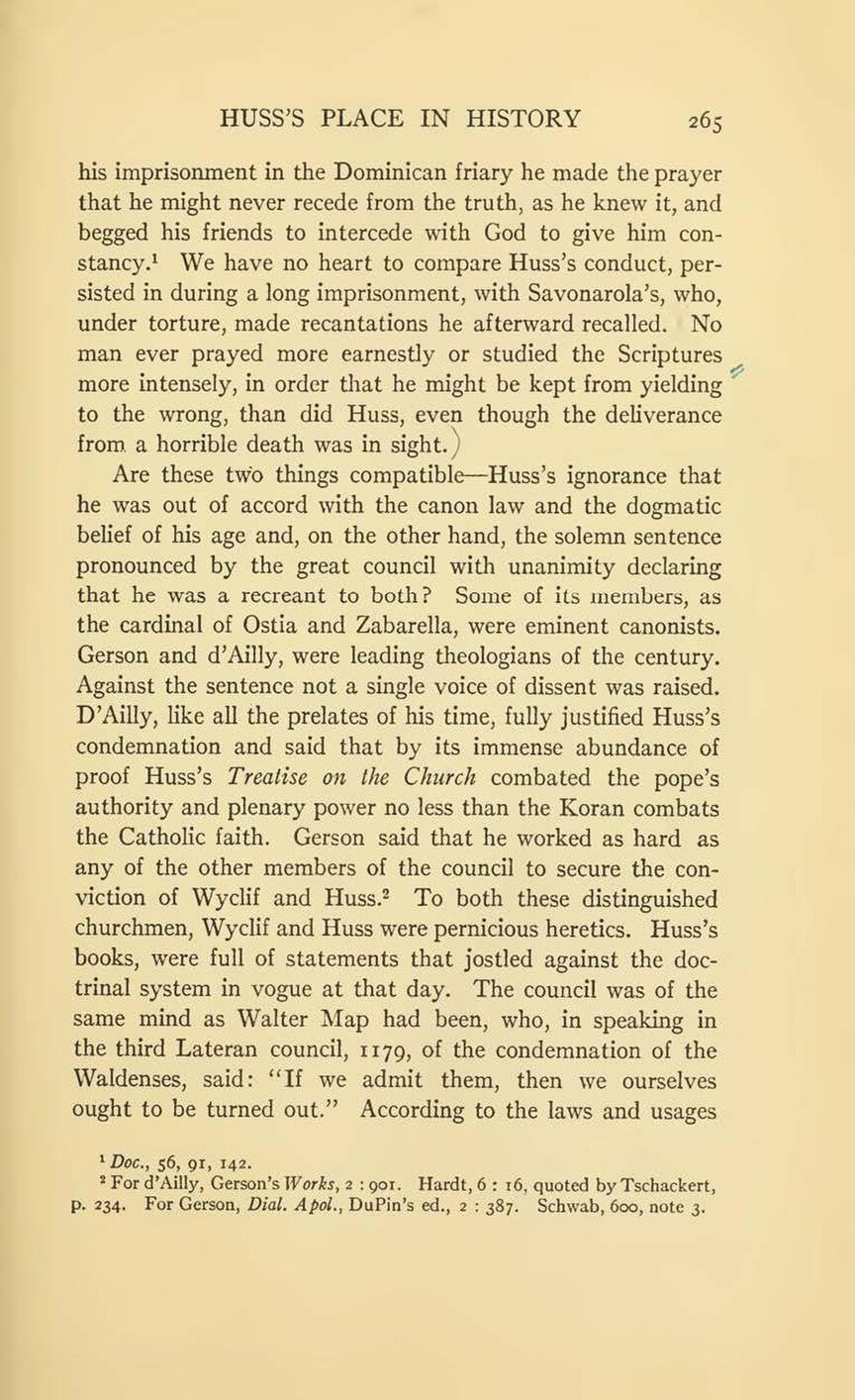his imprisonment in the Dominican friary he made the prayer that he might never recede from the truth, as he knew it, and begged his friends to intercede with God to give him constancy.[1] We have no heart to compare Huss’s conduct, persisted in during a long imprisonment, with Savonarola’s, who, under torture, made recantations he afterward recalled. No man ever prayed more earnestly or studied the Scriptures more intensely, in order that he might be kept from yielding to the wrong, than did Huss, even though the deliverance from a horrible death was in sight.
Are these two things compatible—Huss’s ignorance that he was out of accord with the canon law and the dogmatic belief of his age and, on the other hand, the solemn sentence pronounced by the great council with unanimity declaring that he was a recreant to both? Some of its members, as the cardinal of Ostia and Zabarella, were eminent canonists. Gerson and d'Ailly, were leading theologians of the century. Against the sentence not a single voice of dissent was raised. D’Ailly, like all the prelates of his time, fully justified Huss’s condemnation and said that by its immense abundance of proof Huss’s Treatise on the Church combated the pope’s authority and plenary power no less than the Koran combats the Catholic faith. Gerson said that he worked as hard as any of the other members of the council to secure the conviction of Wyclif and Huss.[2] To both these distinguished churchmen, Wyclif and Huss were pernicious heretics. Huss’s books, were full of statements that jostled against the doctrinal system in vogue at that day. The council was of the same mind as Walter Map had been, who, in speaking in the third Lateran council, 1179, of the condemnation of the Waldenses, said: “If we admit them, then we ourselves ought to be turned out.” According to the laws and usages
